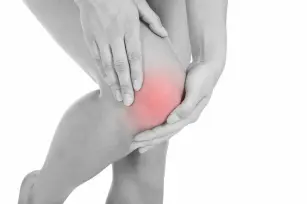
Early detection and treatment of rheumatoid arthritis allows for effective and highly probable long-term remission. So it’s worth knowing what to avoid and how to treat its symptoms.
Rheumatoid arthritis – RA, rheumatoid arthritis, formerly also chronic progressive rheumatoid arthritis, is a chronic inflammatory disease that affects the joints and other organs. One of the most characteristic symptoms is pain, stiffness and swelling of the joints, especially in the hands and feet. If left untreated, it can even lead to severe disability, as well as organ damage, and thus premature death. Therefore, it is worth avoiding RA as early as possible.
The main ones diagnosed so far causes of RA are: load, defect of the immune system, gender – because women get sick about 3 times more often than men, infection – some bacteria and viruses are suspected of initiating the inflammatory response, smoking, stress.
In the first stages of the disease, “general” flu-like symptoms often appear, such as feeling weak, low-grade fever, muscle pain, loss of appetite or weight loss. They may precede or accompany joint symptoms. In the course of the disease, symptoms of involvement of other organs may also occur: pain and stiffness, swelling, tenderness of the joint to pressure, limitation of mobility, deformation of the joints.
If there is pain and swelling in the joints, the first thing you should do is go to the doctor immediately, it definitely increases the chances of a permanent withdrawal of the disease. In 2010, criteria (ACR/EULAR) were developed that allow the diagnosis of RA at an early stage of the disease, which allows starting treatment before irreversible joint destruction occurs.
RA treatment methods have also changed significantly. New, effective drugs have appeared. It is now important to use a disease-modifying anti-rheumatic drug (DMARD) as soon as possible. In addition to the basic pharmacological treatment in this disease, it is important to start rehabilitation early, and sometimes even surgical treatment. Decisions on the type of treatment are made by a rheumatologist depending on the degree of disease development, which involves regular visits and laboratory tests to assess the effectiveness and possible side effects of the drugs used.
Disease-modifying drugs (DMARDs) not only relieve symptoms, but above all inhibit joint destruction, thanks to which they allow you to maintain efficiency and normal functioning in everyday life. However, after discontinuation of them, the disease tends to return. In the treatment of RA, biological drugs obtained using genetic engineering techniques have also been used for several years, glucocorticosteroids quickly reduce the symptoms of arthritis and inhibit the process of their destruction, which is why they are often used at the beginning of the disease, non-steroidal anti-inflammatory drugs – they reduce the symptoms of arthritis, but do not inhibit the progression of the disease, analgesics such as paracetamol and opioids are used if pain persists despite full basic treatment, as well as non-pharmacological treatment. Support, rest, and exercise are important for all patients, but should be discontinued if symptoms worsen.









